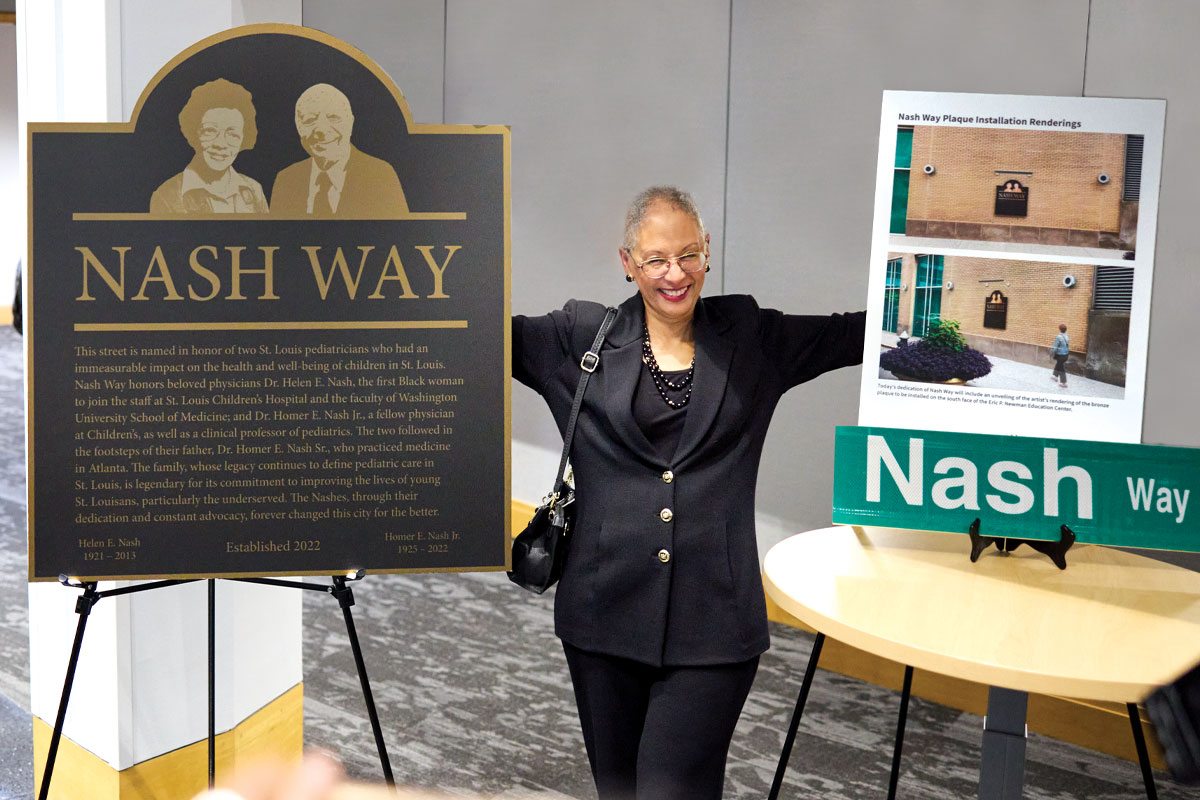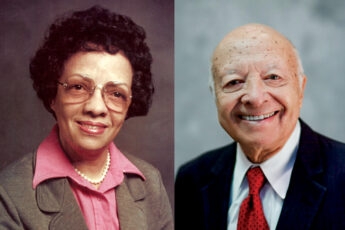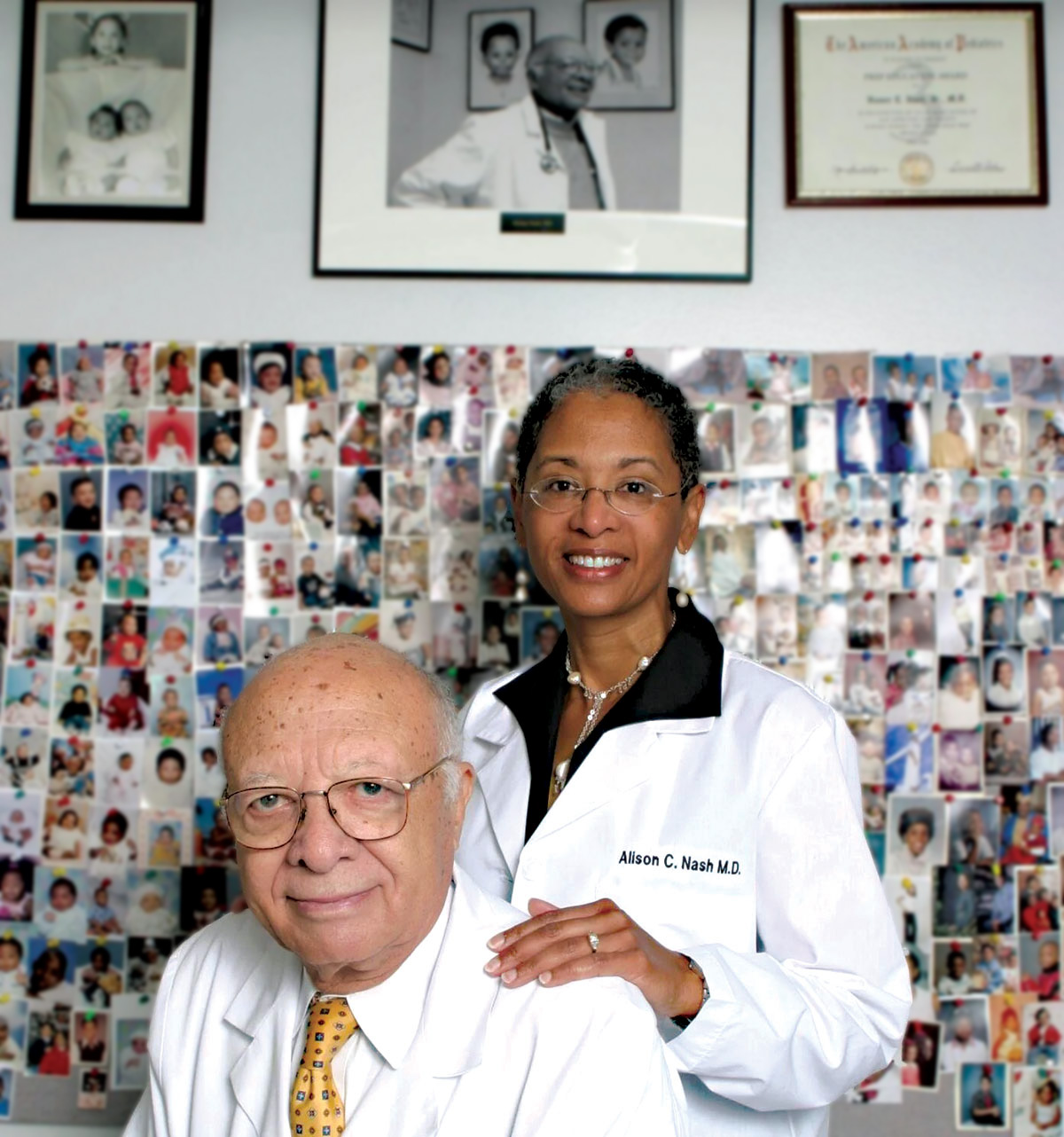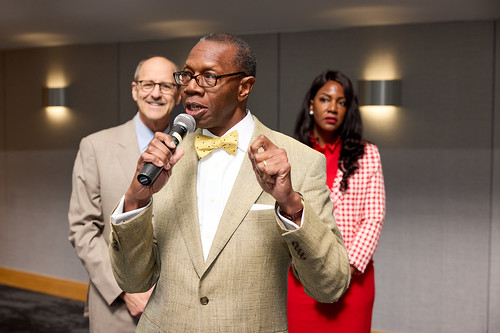
Alison C. Nash, MD, a third-generation pediatrician, understood the importance of health equity in medicine decades before it became a priority in most medical schools and hospitals. She recognized that achieving health equity requires physicians to identify people in need of care, particularly those from disadvantaged communities.
A potential patient could live within walking distance of a doctor’s office, but lack the mobility or money for an annual exam. A person in need of mental health treatment could work a job that provides no paid time off, much less insurance benefits that include psychiatric care. Or a person could struggle with a serious condition such as Type 2 diabetes without ever realizing that limited access to nutritious foods, and the inability to pay the higher costs associated with such foods, can be a major disease driver.
Nash learned this as the daughter of Homer E. Nash Jr., MD, and the niece of Helen E. Nash, MD. Her father and aunt were prominent, groundbreaking pediatricians in St. Louis. For decades, Homer and Helen Nash worked tirelessly to build health equity — through outreach and educational programs and by earning recommendations from family and friends who could vouch for their trustworthiness, compassion and skills.

“I grew up surrounded by the most perfect role models and mentors in life and pediatric health care,” said Nash, now a professor of clinical pediatrics. “My father and aunt chose to establish their pediatric practices in north St. Louis, the community where they lived, and the community whose population was poor, underserved, vulnerable and lacked adequate health care. They built a strong tradition of providing excellent health care to families in the African American community with a whole-family, whole-community approach to treating and preventing illness in children.”
Besides treating generations of children, the Nash family also has influenced hundreds of physicians, trainees and a range of other health-care workers to emphasize health equity in patient care.
To honor the Nashes, Washington University, with support from institutional leaders on the Medical Campus, initiated a street-renaming proposal that, in early 2022, was approved by the St. Louis Board of Aldermen. On Oct. 14, Nash Way replaced Children’s Place between Euclid Avenue on the west to Taylor Avenue on the east.
“The Nash family’s legacy continues to define pediatric care in St. Louis,” said David H. Perlmutter, MD, executive vice chancellor for medical affairs, the George and Carol Bauer Dean of the School of Medicine and the Spencer T. and Ann W. Olin Distinguished Professor. “For decades, the Nash family has fought for children in the community who have lacked access to basic health care. The Nashes embody compassionate medicine by valuing the humanity of patients and their families with kindness, respect and advocacy.”

Indeed, the siblings inspired Alison Nash to continue her aunt’s and father’s legacies by practicing pediatrics at St. Louis Children’s Hospital beginning in 1989. She now treats the grandchildren and great-grandchildren of her aunt’s and father’s doting patients at Nash Pediatrics in north St. Louis.
In addition, she continues the family legacy by serving as a community representative for Children’s Hospital and by mentoring medical trainees on the challenges of community outpatient settings, as well as St. Louis Public School students who plan to pursue medicine and science. Nash also is the medical director of Healthy Kids Express, which sends mobile care units into communities to provide dental and asthma care and screen for hearing and vision abnormalities, lead poisoning and anemia.
“Dad and Aunt Helen grew up during segregation and, despite the inherent roadblocks, they obtained their medical degrees at Meharry Medical College in Nashville, Tenn.,” Nash said. “They then came to St. Louis to undergo medical training at Homer G. Phillips Hospital, a segregated hospital, which was one of the few places in the country Black physicians could get specialty training at that time. During their training, both experienced firsthand the effects of health inequity on the patients they cared for. This experience solidified a resolve to do all they could to change that. Seeing them in action throughout my childhood inspired me to choose a career in pediatric medicine and work toward health equity.”
Similarly, Helen and Homer Nash were inspired by their father, Homer E. Nash Sr., MD, who graduated medical school in 1910 and practiced general medicine in Atlanta as one of the country’s first Black physicians.
In 1949, Helen Nash started her pediatric practice in St. Louis and became one of the first four Black physicians on the medical school’s clinical faculty; specifically, she was the first Black woman to join the attending staff at Children’s Hospital. There, she helped create one of the earliest specialty wards for premature infants.

From 1994 to 1996, she served as acting dean of minority affairs. In addition to being the recipient of numerous awards, Helen Nash created several scholarships for St. Louis students of all ages who want to pursue careers in medicine and science. Each year, the medical school honors a student with the Dr. Helen E. Nash Academic Achievement Award.
Helen Nash died at age 91 in September 2013.
Before graduating from medical school in 1951, Homer Nash Jr. served in the U.S. Army in Italy during World War II, for which he was awarded a Purple Heart and a Bronze Star. After military service, he moved to St. Louis to train in pediatrics under his sister at Homer G. Phillips Hospital. He opened a practice in the city and became a clinical professor at Washington University.
Later, he joined the medical staff of hospitals affiliated with the university, including St. Louis Children’s, where he participated on multiple committees and advisory boards. Additionally, he worked with the Community Outpatient Practice Experience, a medical training program in community pediatrics.
Homer Nash Jr. died in April 2022 at age 96.
“Although I had excellent training in pediatrics, what I learned about the ‘art’ of medicine and the practice of pediatrics, I learned from my father and my aunt,” Alison Nash said. “Because of the foundation of excellence they established, our patients and families have trust in the care we provide. I consider it a privilege to continue their legacy.”
Published in the Winter 2022-23 issue



